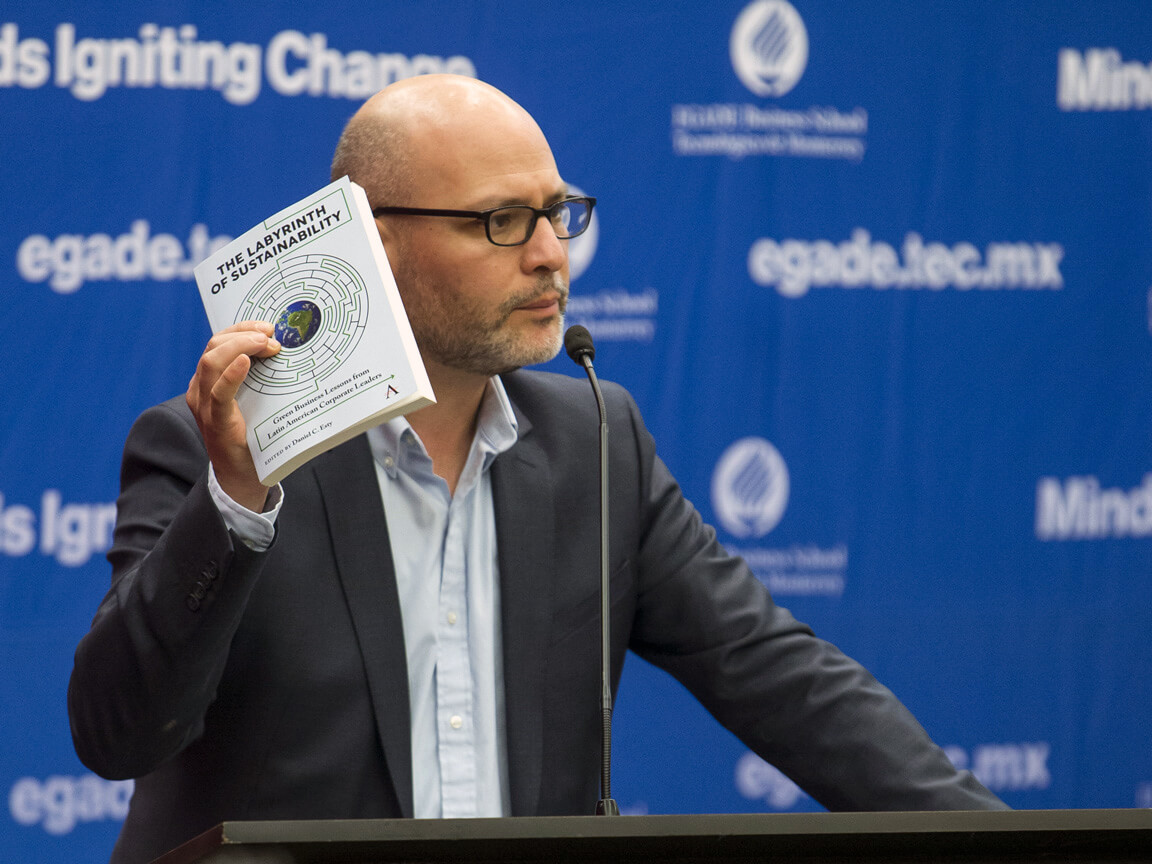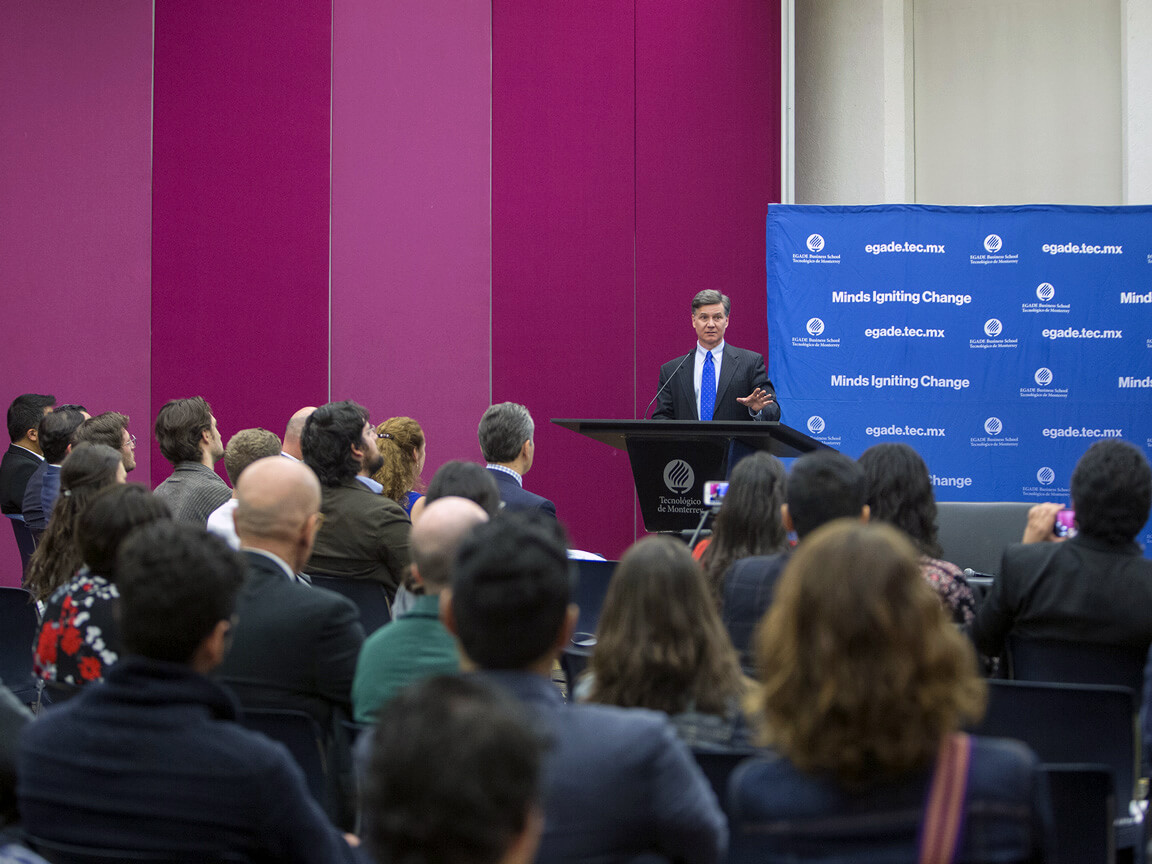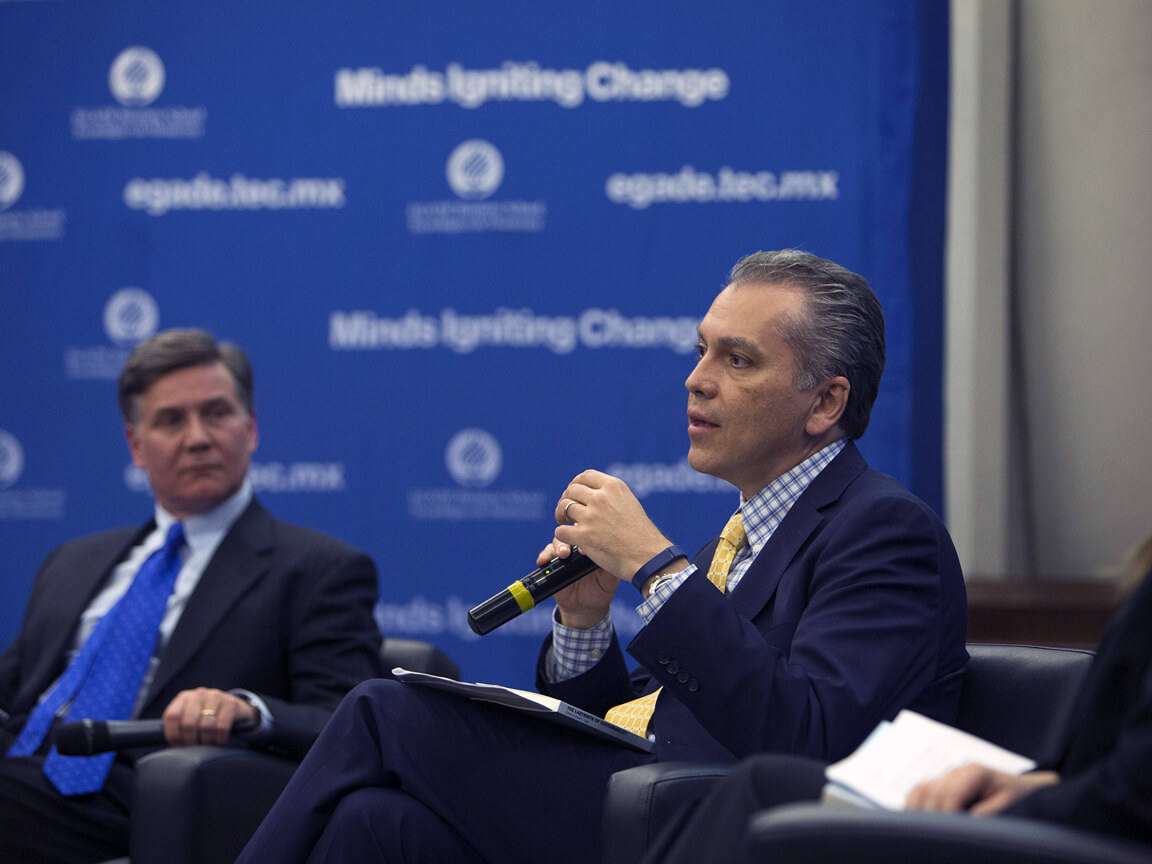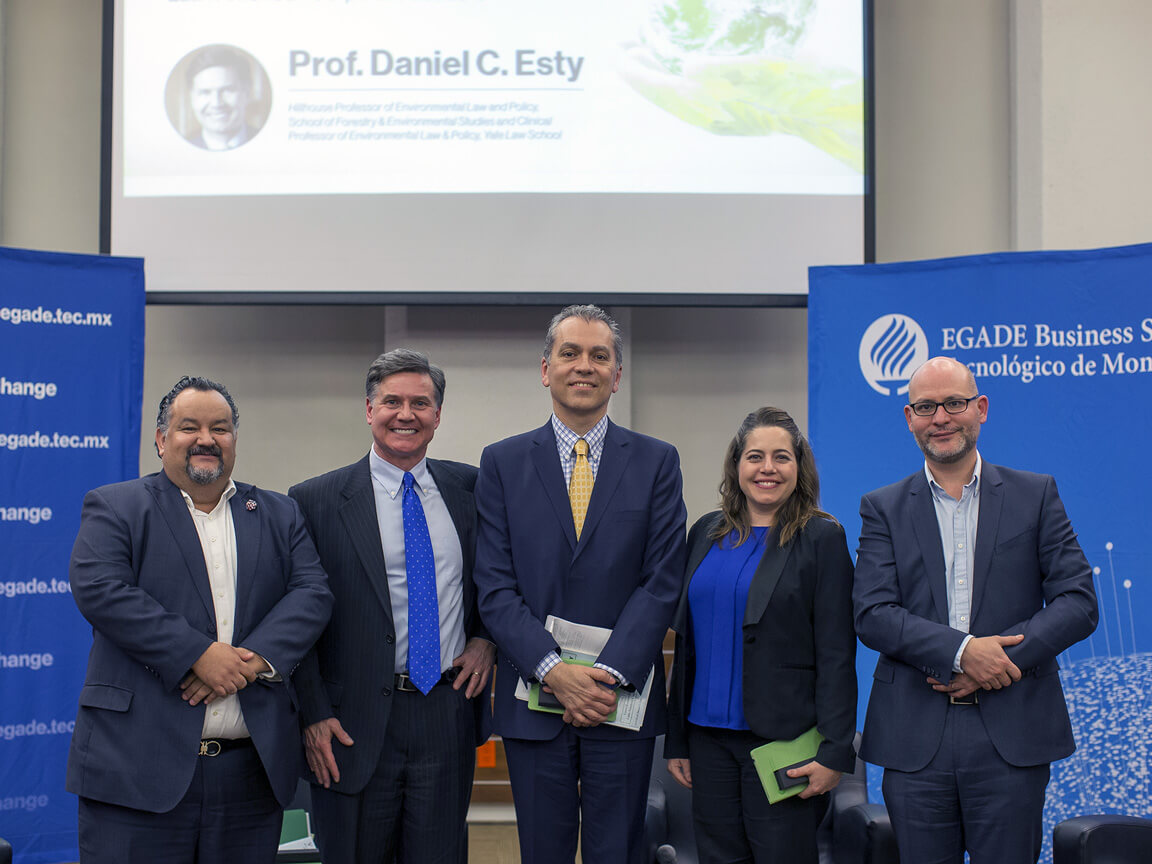- In a panel following the presentation of the book Labyrinth of Sustainability, academic and business leaders analyzed success cases of leading companies, such as Nestlé and Walmart in Mexico, and corporate sustainability strategies in the region.

Even though many companies want to be more sustainable, sustainability is actually an obstacle-filled labyrinth for most of them. Learning to navigate across this complexity is one of the objectives of the new book Labyrinth of Sustainability: Green Business Lessons from Latin American Corporate Leaders, edited by Daniel C. Esty, Hillhouse Professor of Environmental Law and Policy at the University of Yale, which brings together a dozen case studies generated jointly by the Yale Center for Environmental Law and Policy, in the USA, EGADE Business School, in Mexico, INCAE Business School, in Costa Rica and Nicaragua, and Fundación Getúlio Vargas, in Brazil. The book presentation took place during an event at EGADE Business School Mexico City and was attended by some of the authors of the cases analyzed, seven of which are signed by academic and doctoral students from the graduate business school.
For the first time in Latin America, a single book has compiled a collection of stories based on the sustainability imperative, “the leadership imperative of our era” according to the renowned academic who coordinated this edition. The 12 case studies reflect diverse perspectives and key sustainability topics in the region and describe the successes and the challenges faced by companies that operate in Latin America.

In Latin America, sustainability has traditionally been seen merely as a matter of reputation. However, more and more Latin American companies have realized that incorporating sustainability into their daily strategy generates competitive advantage. “It is a way of reducing risks, lowering costs, specifically energy costs, and of generating growth in both revenues and profitability,” explained Dan Esty in his presentation, which was introduced by Dr. Ernesto Amorós, National Director of Doctoral Programs at EGADE Business School.
“We have discovered many things during our investigation, including that all types of companies, regardless of their industry or size, have sustainability components that can be incorporated into their strategy to differentiate themselves from the competition,” explained the academic, who added that sustainability cannot have a limited vision. “You have to understand that there are numerous stakeholders in the 21st century, so not only those who fight for the environment are important, but you must also take an interest in the community, local governments, consumers, your suppliers and, increasingly, investors, who are scrutinizing more and more whether companies are sustainable.”
The presentation then gave way to the panel “Corporate Sustainability in Latin America”, moderated by Dr. Luli Pesqueira, Business Liaison coordinator at WWF México, with the participation of the book’s editor, Juan Pardo, senior manager of Corporate Affairs at Nestlé México, and Juan Carlos Camargo, Sustainability deputy director at Walmart Mexico and Central America.
“One of Walmart’s ambitions was to use a 100% clean, renewable energy supply. The case study reflects how we were able to connect with wind power project developers,” Juan Carlos Camargo explained.
“Our strategy has helped us to consolidate our leadership image in Mexico and with our shareholders, having reached the point of operating eight renewable energy projects. 90% of our stores already receive renewable energy generated in the country, allowing us to separate the growth of our emissions from the growth of our sales floor,” he added.
Juan Pardo, from Nestlé, explained the innovation of his company’s case study included in the book: “In powdered milk production, we combined two technologies to make use of evaporation from the milk dehydration process, condensing the water that comes from the milk to treat and use it up to two times in services. We no longer use an Olympic-size swimming pool of water every day.”

“We were worldwide pioneers in an example of Mexican knowhow that is now being exported. It’s a matter of circular economy, of how we can reuse and better manage natural resources,” indicated the Nestlé manager.

Nestlé sponsored giving 100 copies of the book to the school’s MBA students, who are preparing to become transforming leaders with a sustainability focus and a commitment to businesses’ positive impact, in line with the mission of EGADE Business School to empower omni-entrepreneurial leaders, who create shared value and transform society.